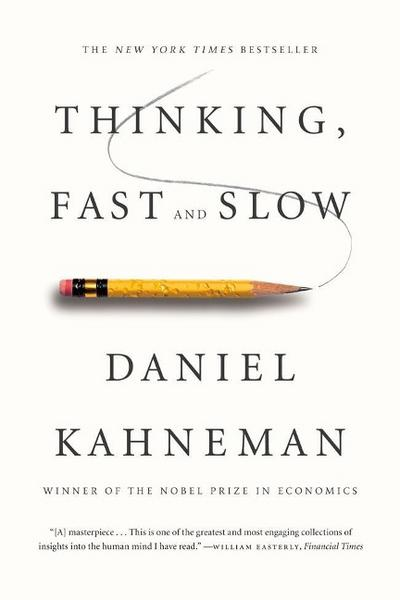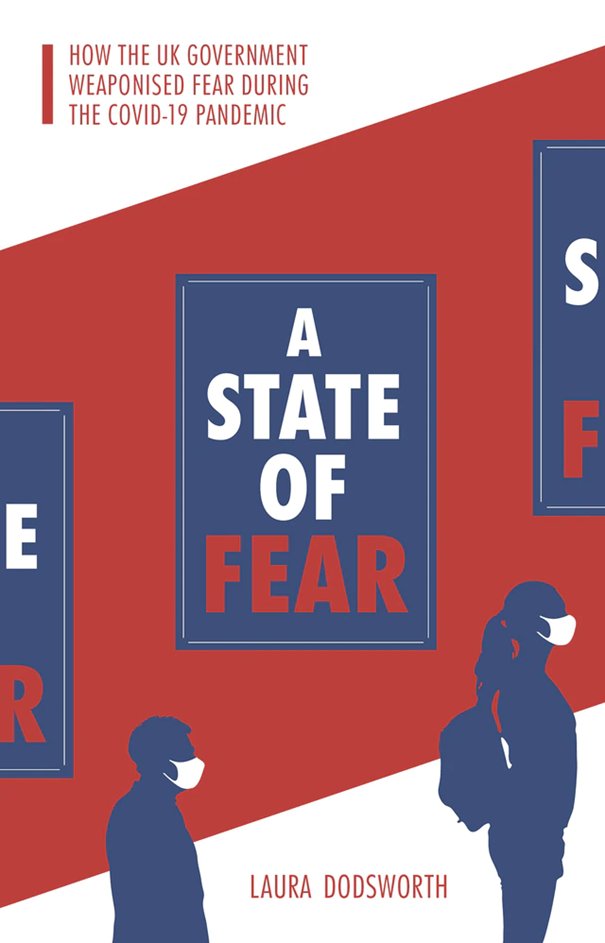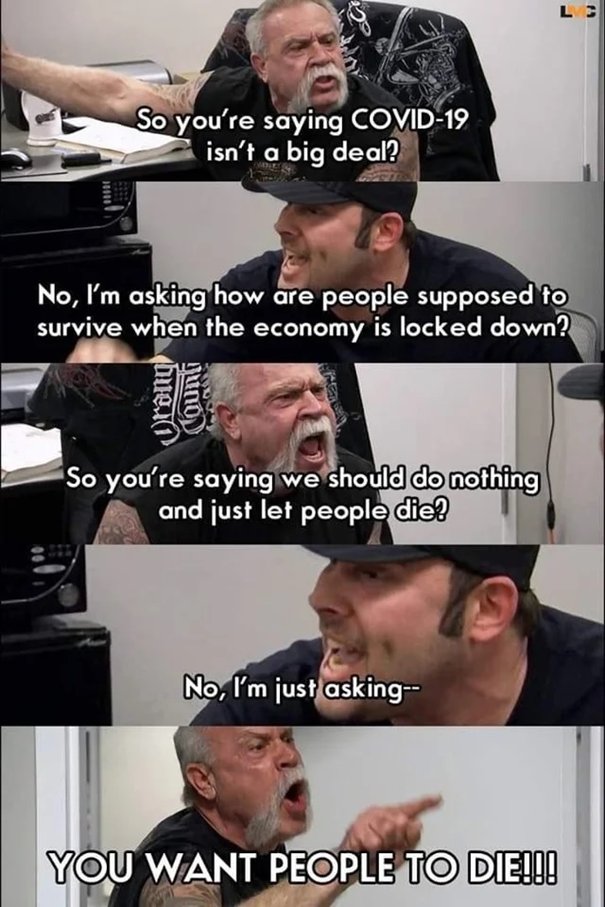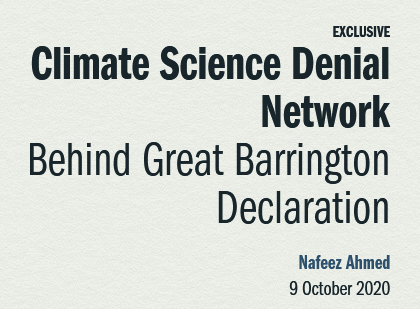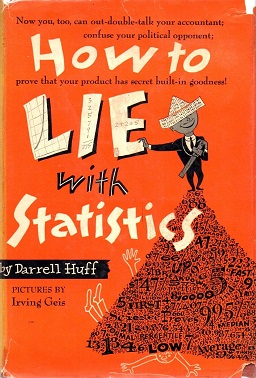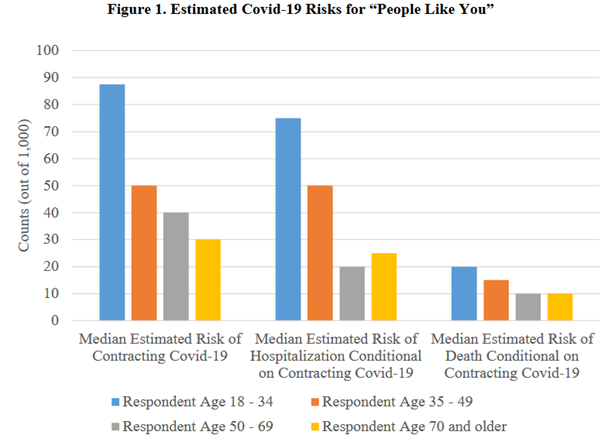1a/n
Dear twitter community
#rhetoric is a tool to WIN a debate
This account is interested in the eternal, unapologetic search for TRUTH: science
This thread lists commonly used rhetorical tricks, logical fallacies and their scientific INvalidity with examples from Covid19 topics
Dear twitter community
#rhetoric is a tool to WIN a debate
This account is interested in the eternal, unapologetic search for TRUTH: science
This thread lists commonly used rhetorical tricks, logical fallacies and their scientific INvalidity with examples from Covid19 topics
1b/n
notice the word "eternal".
Anyone who claims that there is THE ONE, even settled science is either naive or dishonest.
Epistemology and scientific methodology seem alien to many during the pandemic.
Science is by definition ALWAYS up for discussion. Otherwise it is a belief
notice the word "eternal".
Anyone who claims that there is THE ONE, even settled science is either naive or dishonest.
Epistemology and scientific methodology seem alien to many during the pandemic.
Science is by definition ALWAYS up for discussion. Otherwise it is a belief
2/n
These rhetorical tricks are masterfully laid out in Arthur Schopenhauer& #39;s book "eristic dialectics" also called "the art of controversy".
Read it, but do NOT use it. These techniques are unethical and unscientific.
http://www.wendelberger.com/downloads/Schopenhauer_EN.pdf">https://www.wendelberger.com/downloads...
These rhetorical tricks are masterfully laid out in Arthur Schopenhauer& #39;s book "eristic dialectics" also called "the art of controversy".
Read it, but do NOT use it. These techniques are unethical and unscientific.
http://www.wendelberger.com/downloads/Schopenhauer_EN.pdf">https://www.wendelberger.com/downloads...
3/n
Those who are using such tricks are not communicating in the interest of progress and win-win outcomes. They are ultimately deceiving their conversation partners and the audience.
Social media is susceptible to this. Why are YOU here? Hopefully not just for dopamine rushes.
Those who are using such tricks are not communicating in the interest of progress and win-win outcomes. They are ultimately deceiving their conversation partners and the audience.
Social media is susceptible to this. Why are YOU here? Hopefully not just for dopamine rushes.
4/n Twitter in particular unfortunately has a tendency to foster such behavior and unneceassary conflict.
Think twice before posting. Check the reliability of sources. Be your own fact-checker.
Think slow, not fast as Daniel Kahneman would say.
Think twice before posting. Check the reliability of sources. Be your own fact-checker.
Think slow, not fast as Daniel Kahneman would say.
5a/n List of some rhetorical techniques commonly ABused in debates
A. Appeal to authority (argumentum ad auctoritatem)
Prof. X of world class university Y said Z,
so it must to be true.
No, it MIGHT be true with higher likelihood than if a layperson said it.
Trust is NOT truth.
A. Appeal to authority (argumentum ad auctoritatem)
Prof. X of world class university Y said Z,
so it must to be true.
No, it MIGHT be true with higher likelihood than if a layperson said it.
Trust is NOT truth.
5b/n
Authoritative sources are particularly deceiving in the Covid19 crisis
Unfortunately, media incentives for sensationalism prevent the most neutral reporting possible.
Some scientists and governments DELIBERATELY use FEAR as a tool in social engineering of contact reductions
Authoritative sources are particularly deceiving in the Covid19 crisis
Unfortunately, media incentives for sensationalism prevent the most neutral reporting possible.
Some scientists and governments DELIBERATELY use FEAR as a tool in social engineering of contact reductions
5c/n
Twitter itself plays a very bad and big role in this
1. with its ill equipped and overwhelmed fact-checkers
2. with its suspension and banning practices
3. with its recommendations of so called "experts" like panic salesman @DrEricDing
Twitter itself plays a very bad and big role in this
1. with its ill equipped and overwhelmed fact-checkers
2. with its suspension and banning practices
3. with its recommendations of so called "experts" like panic salesman @DrEricDing
6/n
B. Appeal to majority or even "consensus"
Science is NOT democratic.
It takes ONE person to falsify the findings of generations of scientific "orthodoxy".
Often times these are outsiders, not insiders who disprove their established convictions.
Historical example: Galileo.
B. Appeal to majority or even "consensus"
Science is NOT democratic.
It takes ONE person to falsify the findings of generations of scientific "orthodoxy".
Often times these are outsiders, not insiders who disprove their established convictions.
Historical example: Galileo.
7/n
C. Character attacks (argumentum ad hominem)
By questioning the underlying motive for an argument and assigning an unethical trait or conviction, the attacker tries to delegitimize the opponent without engaging on the topic.
Example: "You don& #39;t care about grandma".
C. Character attacks (argumentum ad hominem)
By questioning the underlying motive for an argument and assigning an unethical trait or conviction, the attacker tries to delegitimize the opponent without engaging on the topic.
Example: "You don& #39;t care about grandma".
8a/n
D. Guilt by association (ex concessis)
By claiming an opponent is connected to an individual or institution of questionable reputation, the third parties& #39; negative image is projected on them
Example: signatories of the @gbdeclaration were RHETORICALLY tied to climate denial
D. Guilt by association (ex concessis)
By claiming an opponent is connected to an individual or institution of questionable reputation, the third parties& #39; negative image is projected on them
Example: signatories of the @gbdeclaration were RHETORICALLY tied to climate denial
8b/n
Guilt by association is often played by the media and politicians claiming all critics of government pandemic policies are "nazis" (even if they want freedom).
it is equally false to associate all red dots with "commies".
Do NOT dehumanize your opponents, engage them.
Guilt by association is often played by the media and politicians claiming all critics of government pandemic policies are "nazis" (even if they want freedom).
it is equally false to associate all red dots with "commies".
Do NOT dehumanize your opponents, engage them.
9/n
E. Assigning an opinion to the opponent that he does NOT hold (strawman argument)
Thereby the opponent is forced to defend for something he did not even say.
Example: "YOU said that government restrictions play NO role in slowing the pandemic."
E. Assigning an opinion to the opponent that he does NOT hold (strawman argument)
Thereby the opponent is forced to defend for something he did not even say.
Example: "YOU said that government restrictions play NO role in slowing the pandemic."
10/n
E. Lying by omission (suppressio veri)
By leaving out key information, a distorted picture is painted. Context is crucial for accurate understanding.
Example: "Covid19 patients in hospitals are getting younger."
Omission: Vaccinations are preventing disease in elderly.
E. Lying by omission (suppressio veri)
By leaving out key information, a distorted picture is painted. Context is crucial for accurate understanding.
Example: "Covid19 patients in hospitals are getting younger."
Omission: Vaccinations are preventing disease in elderly.
11a/n
F. Repeating a popular falsehood (argumentum ad populum)
The attacker uses a known falsehood because it is still accepted by many people in the audience to win their support.
Example: young people drastically overestimate their Covid19 outcome risk
https://www.nber.org/system/files/working_papers/w27494/w27494.pdf">https://www.nber.org/system/fi...
F. Repeating a popular falsehood (argumentum ad populum)
The attacker uses a known falsehood because it is still accepted by many people in the audience to win their support.
Example: young people drastically overestimate their Covid19 outcome risk
https://www.nber.org/system/files/working_papers/w27494/w27494.pdf">https://www.nber.org/system/fi...
11b/n
Variation of a popular falsehood: the NOBLE LIE
Public health officials sometimes lie if they think it is for the "common good"
The infamous Dr. Faucci and WHO repeatedly changed statements on masks during this pandemic. They CREATED popular falsehoods and spread them.
Variation of a popular falsehood: the NOBLE LIE
Public health officials sometimes lie if they think it is for the "common good"
The infamous Dr. Faucci and WHO repeatedly changed statements on masks during this pandemic. They CREATED popular falsehoods and spread them.
12/n
G. Sensationalism
Presenting benign information as earth shattering news.
Example: “mutation #1462376 is by far the most dangerous so far. WE know this from the 5 lives of vaccinated people it took so far. No vaccine will ever stop it.“
G. Sensationalism
Presenting benign information as earth shattering news.
Example: “mutation #1462376 is by far the most dangerous so far. WE know this from the 5 lives of vaccinated people it took so far. No vaccine will ever stop it.“
13a/n
H. Inductive thinking
SOME exhibited this characteristic, so it must be true for ALL
You can NOT conclude from a part to the whole
Example: Hospitalized people often have #LongCovid so it is a HUGE problem
Fallacy: Hospitalized people make up less than 2% of all infections
H. Inductive thinking
SOME exhibited this characteristic, so it must be true for ALL
You can NOT conclude from a part to the whole
Example: Hospitalized people often have #LongCovid so it is a HUGE problem
Fallacy: Hospitalized people make up less than 2% of all infections
13b/n
Induction: Anecdote presented as statistic
Media favorite
Telling personal stories is touching and entices audiences to empathize
Unfortunately even experienced scientists promote these personal stories. Some deliberately spread them as if they are statistically significant
Induction: Anecdote presented as statistic
Media favorite
Telling personal stories is touching and entices audiences to empathize
Unfortunately even experienced scientists promote these personal stories. Some deliberately spread them as if they are statistically significant
14/n
I. Distraction
Facts are replaced by "alternative facts" or a change of subject. The conversation is steered towards a topic the attacker deems to be more favorable to them.
Example: "Ok, deaths are way down, but #LongCovid
I. Distraction
Facts are replaced by "alternative facts" or a change of subject. The conversation is steered towards a topic the attacker deems to be more favorable to them.
Example: "Ok, deaths are way down, but #LongCovid
15/n
J. Circular argumentation (circulus in probando)
The conclusion is presented as the premise.
This often happens in epidemiological computer models were input variables are fitted to the model code to yield the expected/desired result.
J. Circular argumentation (circulus in probando)
The conclusion is presented as the premise.
This often happens in epidemiological computer models were input variables are fitted to the model code to yield the expected/desired result.
16/n
K. Endless Repetition
The debate is turned into an endurance contest about who has the last word. The opponent shall be worn out be simply unnerving them with the same argument over and over again in multiple rephrasings.
K. Endless Repetition
The debate is turned into an endurance contest about who has the last word. The opponent shall be worn out be simply unnerving them with the same argument over and over again in multiple rephrasings.
17/n
L. Requesting proof for an established fact:
A popular abuse of Socratic questioning techniques
"You (still) have not proven Z, prove it already"
In a variation, proof presented by the opponent is either denied or outright ignored and requested over and over again.
L. Requesting proof for an established fact:
A popular abuse of Socratic questioning techniques
"You (still) have not proven Z, prove it already"
In a variation, proof presented by the opponent is either denied or outright ignored and requested over and over again.
18/n list of all books recommended in thread
1. Schopenhauer 1831 - Eristic dialectics
2. Kahnemann 2013 - Thinking, fast and slow
3. Dodsworth 2021 - A state of fear, how the UK government weaponized fear during the Covid-19 pandemic
4. Huff 1954 - How to lie with statistics
1. Schopenhauer 1831 - Eristic dialectics
2. Kahnemann 2013 - Thinking, fast and slow
3. Dodsworth 2021 - A state of fear, how the UK government weaponized fear during the Covid-19 pandemic
4. Huff 1954 - How to lie with statistics
19/n
Thank you very much if you read until here.
Noble lies, sensationalism, taboos, spinning, fearmongering, scientific territorialism, pseudoelitism etc. will only worsen the outcomes of this pandemic.
INFORMED consent and discourse are needed.
The truth shall set us free!
Thank you very much if you read until here.
Noble lies, sensationalism, taboos, spinning, fearmongering, scientific territorialism, pseudoelitism etc. will only worsen the outcomes of this pandemic.
INFORMED consent and discourse are needed.
The truth shall set us free!

 Read on Twitter
Read on Twitter